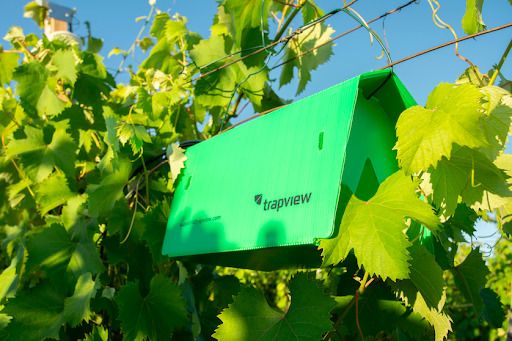Trapview, a pest insect monitoring and forecasting platform first developed by Slovenian company Efos, has just raised €3.7 million ($4.38 million) in ‘Series A2’ funding.
The round saw investments from two European impact investors: Italy’s Oltre Ventures, alongside a Dutch syndicate called Put Your Money Where Your Meaning Is Community – or Pymwymic, for short. Kubota Corporation, a Japanese agri-manufacturing giant that had already formed in strategic partnership with Trapview, also invested.
Founded in 2007 in Slovenia as an IT research company, Trapview soon doubled down on the world of integrated pest management. Now, it has over 4,000 traps operational in fields, and claims to own the largest database of pest data and algorithms in the world. According to CEO Matej Štefančič, the company has surpassed 1,300 unique customers across Europe, Australia, and the Americas – a list that includes big corporate names like Syngenta, Bonduelle, Adama, and Pepsico.
Štefančič told AFN how his company’s algorithms are capable of harnessing years of data to provide automated monitoring and forecasting models for almost 40 different insect species. The idea, he said, is “to provide software-as-a-service to bring real value as a decision support tool.”
Those decisions usually revolve around a Hamlet-esque dilemma: to spray, or not to spray. Better monitoring and forecasting, Štefančič said, allows these decisions to be made earlier, and the sprays of chemical insecticides can therefore be much lighter and more targeted – so no more carpet bombing to err on the side of caution.
This is why Pymwymic’s managing director, Rogier Pieterse, heralds Trapview as “a disruptive breakthrough towards more sustainable farming.” He believes the system Trapview has created will enable the manifold benefits of healthier and more affordable food, along with less ecologically damaging agricultural practices.
The eco-case here for reduced chemical usage is overwhelming. Last year the journal Biological Conservation published a bombshell study suggesting 40% of all insect species are in decline, with many en route to extinction within decades. Habitat loss by conversion to intensive agriculture, the study claimed, “is the main driver.”
Given that the dimensions of this problem are financial as well as ecological, there are dozens of agtech startups seeking ways to mitigate it – ranging from pheromone developers, to pioneers of novel “sterile insect techniques,” to designers of bug-detecting robots or drones capable of prescribing a more judicious pest control.
Companies providing sophisticated monitoring systems in a similar vein to Trapview include Semios, DTN, Metos, CropSafe, and FarmSense – with newcomers also entering the field like the UK’s Spotta, which raised its $1.2 million seed round in August.





